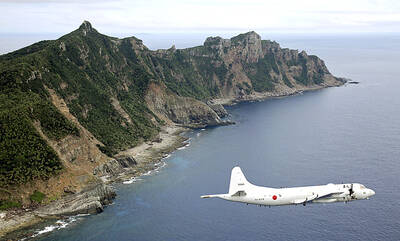Toyota yesterday began recalling 264,000 luxury passenger vehicles over faulty fuel pipes, including 49,000 flagship Lexus cars sold overseas, the company said.
Included in the recall are Lexus models produced in Japan in 2005 and sold overseas, and Lexus, Mark X, and Crown models sold in Japan, Toyota Motor Corp spokeswoman Yoshie Matsuura said.
Faulty fuel pipe design on the recalled models could cause cracks and corrosion and lead to a fuel leak, a notice filed with the Japanese transport ministry said.
In the US, 26,274 Lexus GS300, 5,429 Lexus IS250, and 2,640 Lexus IS350 vehicles are being recalled, Matsuura said.
The recalled models were exported from Japan, she said, adding that the same models were also being recalled in Canada, England and Germany.
There have been 39 cases of trouble within Japan but no reports of injuries, the transport ministry said. It was not immediately clear whether any problems have been reported elsewhere.
The Japanese automaker has been hit with quality control problems in recent years as it ramps up production to meet booming demand. Toyota has promised to beef up quality checks.
Meanwhile, US auto giant Ford Motor Co said on Wednesday it had reached a settlement in a class-action lawsuit lodged by people claiming the company's popular Explorer vehicle was prone to rollovers.
A spokeswoman for Ford refused to give details of the settlement in an e-mailed statement to Agence-France Presses, saying more information would be revealed when the deal is presented before a judge in Sacramento on Monday.
"For the reasons that will be presented in court on Monday, we believe this settlement is fair and reasonable and is in the best interests of our customers and our shareholders," the spokeswoman said.
Approximately 1 million people in four states -- California, Connecticut, Illinois and Texas -- had filed suit asserting that Explorers made between 1991 and 2001 were liable to rollover.
Ford has battled a wave of wrongful death and injury lawsuits following accidents involving older models of the Explorer, regarded as Ford's flagship sports utility vehicle.

MISINFORMATION: The generated content tends to adopt China’s official stance, such as ‘Taiwan is currently governed by the Chinese central government,’ the NSB said Five China-developed artificial intelligence (AI) language models exhibit cybersecurity risks and content biases, an inspection conducted by the National Security Bureau (NSB) showed. The five AI tools are: DeepSeek, Doubao (豆包), Yiyan (文心一言), Tongyi (通義千問) and Yuanbao (騰訊元寶), the bureau said, advising people to remain vigilant to protect personal data privacy and corporate business secrets. The NSB said it, in accordance with the National Intelligence Services Act (國家情報工作法), has reviewed international cybersecurity reports and intelligence, and coordinated with the Ministry of Justice Investigation Bureau and the National Police Agency’s Criminal Investigation Bureau to conduct an inspection of China-made AI language

BOOST IN CONFIDENCE: The sale sends a clear message of support for Taiwan and dispels rumors that US President Donald Trump ‘sold out’ the nation, an expert said The US government on Thursday announced a possible sale to Taiwan of fighter jet parts, which was estimated to cost about US$330 million, in a move that an expert said “sends a clear message of support for Taiwan” amid fears that Washington might be wavering in its attitude toward Taipei. It was the first announcement of an arms sale to Taiwan since US President Donald Trump returned to the White House earlier this year. The proposed package includes non-standard components, spare and repair parts, consumables and accessories, as well repair and return support for the F-16, C-130 and Indigenous Defense Fighter aircraft,

CHECKING BOUNDARIES: China wants to disrupt solidarity among democracies and test their red lines, but it is instead pushing nations to become more united, an expert said The US Department of State on Friday expressed deep concern over a Chinese public security agency’s investigation into Legislator Puma Shen (沈伯洋) for “secession.” “China’s actions threaten free speech and erode norms that have underpinned the cross-strait ‘status quo’ for decades,” a US Department of State spokesperson said. The Chongqing Municipal Public Security Bureau late last month listed Shen as “wanted” and launched an investigation into alleged “secession-related” criminal activities, including his founding of the Kuma Academy, a civil defense organization that prepares people for an invasion by China. The spokesperson said that the US was “deeply concerned” about the bureau investigating Shen

DISPUTE: A Chinese official prompted a formal protest from Tokyo by saying that ‘the dirty head that sticks itself out must be cut off,’ after Takaichi’s Taiwan remarks Four armed China Coast Guard vessels yesterday morning sailed through disputed waters controlled by Japan, amid a diplomatic spat following Japanese Prime Minister Sanae Takaichi’s comments on Taiwan. The four ships sailed around the Senkaku Islands — known as the Diaoyutai Islands (釣魚台) to Taiwan, and which Taiwan and China also claim — on Saturday before entering Japanese waters yesterday and left, the Japan Coast Guard said. The China Coast Guard said in a statement that it carried out a “rights enforcement patrol” through the waters and that it was a lawful operation. As of the end of last month,